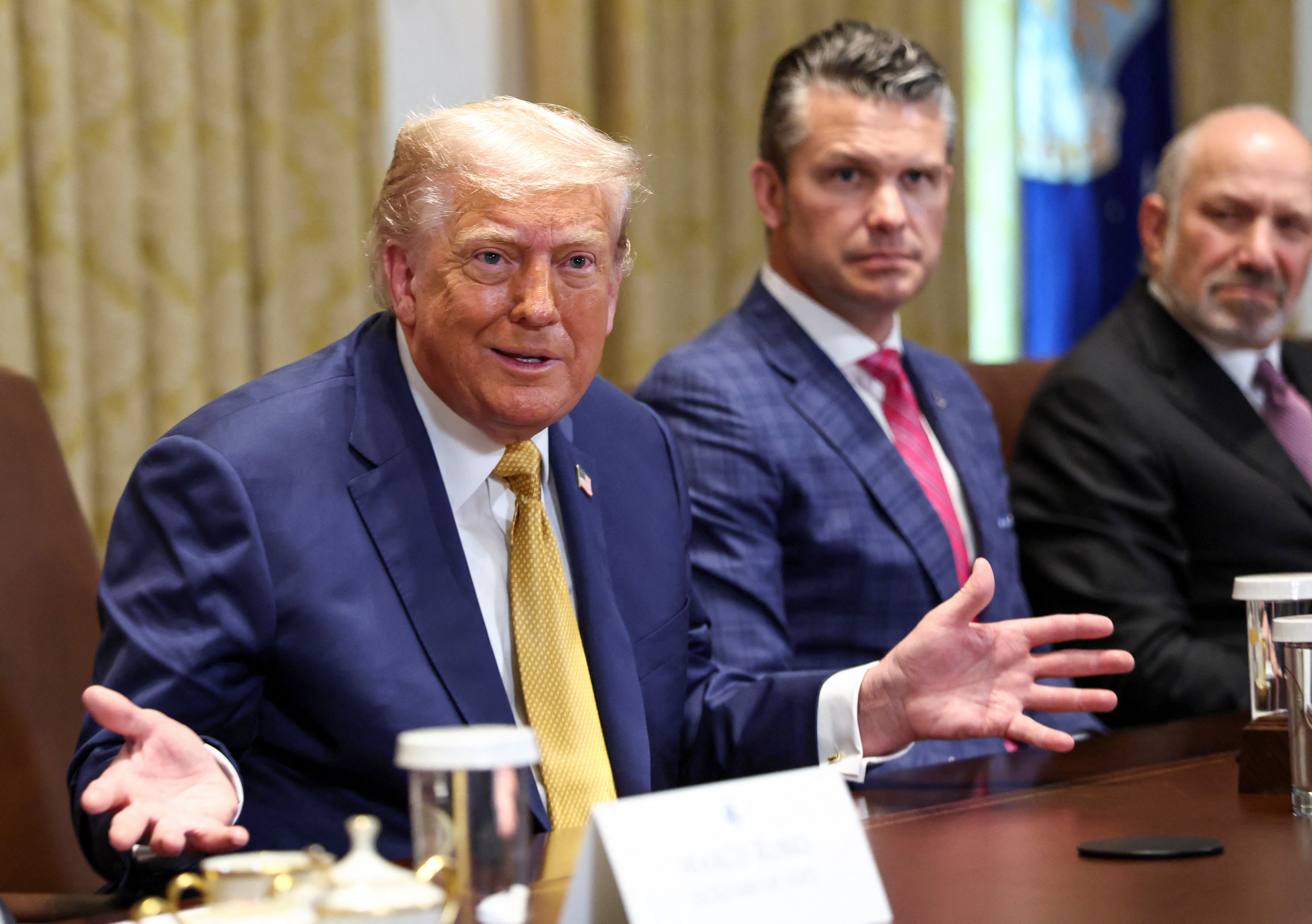Donald Trump has imposed a 17 percent tariff on tomatoes imported from Mexico, leaving shoppers and business owners bracing for the price of the grocery staple to increase.
The tariffs took effect on Monday after the U.S. withdrew from the Tomato Suspension Agreement, a nearly three-decade-old trade agreement between the two countries.
Secretary of Commerce Howard Lutnick said that American farmers had “been crushed by unfair trade practices” and that the existing agreement had failed to protect U.S. producers like tomato growers.
“That ends today,” Lutnick continued. “This rule change is in line with President Trump’s trade policies and approach with Mexico.”
The Commerce Department said that the 17 percent import tax is calculated to measure the percentage by which Mexican tomatoes have been sold in the U.S. at unfair prices.

The levies mark one of the latest examples of the president’s chaotic tariff policy, which analysts say contributed to inflation reaching 2.7 percent in June.
As consumers battle increasing prices, the measure will likely result in higher costs at supermarkets and restaurants.
“I give it three months, and then we go bankrupt,” Teresa Razo, owner of two Argentine-Italian restaurants in Southern California, told CNN.
Justin De Leon, co-owner of Apollonia’s Pizza in Los Angeles, told the outlet that Trump’s tariffs have created “instability” and “fear.”
About 70 percent of tomatoes consumed in the U.S. are imported from Mexico, according to the Florida Tomato Exchange. In 2023, the U.S. imported approximately $2.5 billion in fresh tomatoes from Mexico.
Field-grown tomatoes cost U.S. shoppers about $1.70 per pound as of May 2025, according to the Bureau of Labor Statistics.
Timothy Richards, a professor of agribusiness at Arizona State University, estimates that consumers could face about a 10 percent price rise for fresh tomatoes while demand may fall by 5 percent.
The Mexican government has refuted claims that it dumped tomatoes on the U.S. market at low prices, instead insisting that their popularity was due to the quality of the product.
Backers of the tariff argue that it will funnel more business to domestic tomato growers, largely in Florida.
But given the volume of the fruit imported, Mexico’s economy and agriculture ministry said it would be “impossible to substitute Mexican tomatoes.”
Officials in Mexico stated that they would attempt to negotiate a new agreement before its producers were affected and assist growers in finding alternative markets.
The U.S. tomato industry brought a case against its Mexican competitors in 1996, arguing that American growers were being harmed.
Through the Tomato Suspension Agreement, the U.S. trade court ordered tariffs to be imposed.
However, on five occasions since then – in 1996, 2002, 2008, 2013, and 2019 – the U.S. agreed to suspend the tariffs on the condition that Mexican growers would sell products at a level above a set minimum.
Inflation jumped in June hitting its highest mark in months amid Trump’s tariffs threat
US tariff of 30% on EU could ‘stop trade as we know it’ – Irish foreign minister
Trump issues 50-day peace ultimatum to Putin: ‘I’m very unhappy with him’
Texas Republican admits: Trump’s tariffs will ‘hurt’ district but ‘I support him’
Cole Palmer receives hero’s welcome in grandfather’s birthplace St Kitts
Inflation jumps hitting its highest mark in months amid Trump’s tariffs threat
Trump fumed when Dan Bongino threatened to resign amid Epstein clash: report







